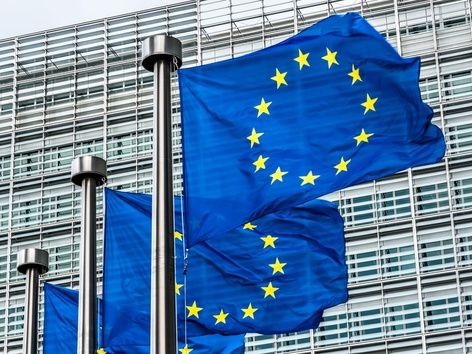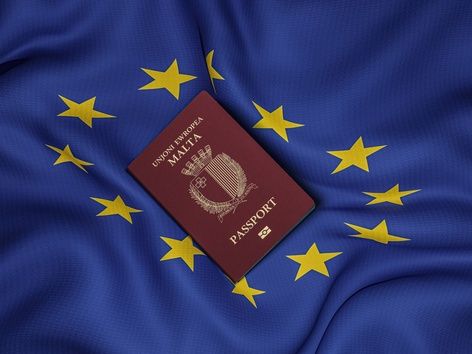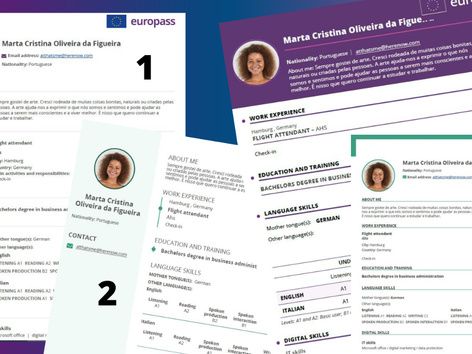Council and European Parliament agree on update EU's Border Code

The agreement between the Council of the European Union and the European Parliament on updating the EU Borders Code is a significant development that reflects the European Union's efforts to strengthen and control its external borders. Find out more about the main aspects of this agreement
Belgium's representatives in the EU Council, together with the European Parliament, have reached a preliminary agreement on amendments to EU legislation governing the Schengen area at the external and internal borders. The agreed changes, once approved and formally adopted by both institutions, will help improve coordination within the EU and provide a more effective toolkit in case of problems at the EU's borders.
The objectives of the revised Schengen Code are to ensure unimpeded movement across internal borders and to strengthen the security of external borders. The agreement reached today aims to clarify and reinforce these basic principles that underpin the Schengen area.
The agreement reflects the importance of cooperation between EU member states in matters of security and free movement of persons within the Union. It is designed to provide greater certainty and stability within the European Union, contributing to the further development and maintenance of the values on which the European project is based.
For safe relocation to any country in the world, obtaining citizenship and employment, take the advice of an international lawyer. We help to solve complex and simple issues for your comfort and safety in any part of the world.
Fighting the instrumentalisation of EU migration flows
The proposed revision of the Schengen Borders Code introduces new measures to effectively manage the EU's external borders, especially in a context where migration is used for political purposes. These measures include limiting the number of border crossing points or reducing their opening hours.
Instrumentalisation, defined as a situation where third countries or non-state actors encourage or facilitate the flow of third-country nationals to the EU's external borders with the aim of destabilising the EU or a Member State, is becoming a serious challenge to security and stability. The updated Schengen Code aims to control this process and prevent possible threats to European integration and security.
Restoring EU internal border controls
The agreed text on internal border controls in the EU provides Member States with a framework for re-introducing and continuing these controls in the event of serious threats to public policy or internal security. According to the new rules, Member States may re-introduce controls on an exceptional basis, assessing the necessity and proportionality of such a measure and considering alternative options.
In the event of unforeseen threats to the state or security, control measures may be imposed immediately, with simultaneous notification to the Commission and other Member States. Such controls are limited to a period of up to one month, but may be extended for three months.
In the case of foreseeable threats, the control may remain in force for six months and may then be extended for a period of up to two years. In exceptional situations, where the threat is permanent, control can be extended even for a period of more than two years, but not more than one year after the extension, not exceeding two years in total.
Promoting the use of alternative measures to secure the EU's borders
The updated Schengen Borders Code defines alternative internal border control measures that will allow EU Member States to effectively control border crossings and ensure security in the free movement area. This will avoid the reintroduction of internal border controls and ensure security and free movement within the Schengen area.
The new code also provides for alternative measures to combat the illegal movement of third-country nationals staying in the Schengen area. Member States will have the possibility to transfer such persons to the country of origin within the framework of bilateral cooperation.
In addition, the new code allows the Council to decide on temporary restrictions at the external border in the event of a large-scale public health emergency, as was the case during the COVID-19 pandemic. These restrictions may include testing, quarantine and self-isolation, but certain categories of persons will be exempted.
The decision may also include health-related travel restrictions such as testing, quarantine and self-isolation. Certain categories of people, such as persons enjoying the right of free movement, long-term residents and beneficiaries of international protection, will be exempt from entry restrictions.
Igor Usyk - Head of Migration department at VisitWorld
To ensure a safe move to a new country, I advise you to consult a specialist. My colleagues, qualified specialists with a legal education, will help you avoid unpleasant situations during migration.
Products from Visit World for a comfortable trip:
Travel guide for 200 countries;
Legal advice from a local specialist on visa and migration issues;
Travel insurance around the world (please select the country of interest and citizenship to receive services);
Medical insurance all over the world.
Recommended articles
3 min
Popular
The Maltese passport is recognised as the rarest passport in the world
Malta is a small country in the heart of the Mediterranean Sea, which has become one of the most desirable countries to live in thanks to its investment citizenship programme. Learn more about the reasons why the Maltese passport is unique
10 lut. 2024
More details2 min
Popular
The most dangerous countries in Europe: ranking in 2024
Europe is considered one of the most developed regions in the world, but that doesn't mean there are no dangerous countries in Europe. Learn more about the Global Peace Index (GPI) and the 10 most dangerous countries in Europe in 2024
19 lut. 2024
More details2 min
Employment
How to create a Europass CV: templates and tips
The Europass CV format was developed by European institutions and is recognised worldwide. Learn more about the rules and useful tips for creating a CV in accordance with European requirements
22 lut. 2024
More details2 min
Work
Work abroad: how to distinguish your resume from other candidates?
Writing a resume is one of the first steps in a job search, and it is also one of the most difficult. Your resume should showcase skills and achievements that are relevant to the job and the country you are applying to. Learn more about how to make your resume stand out and get hired
26 lut. 2024
More detailsAll materials and articles are owned by VisitWorld.Today and are protected by international intellectual property regulations. When using materials, approval from VisitWorld.Today is required.
